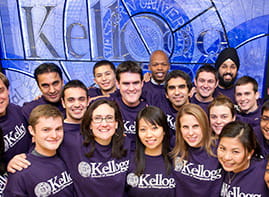6/30/2015 -
Editor's Note: In the Start Me Up series, the Kellogg School spotlights members of the Kellogg community who are bringing bold entrepreneurial visions to life.
While gun violence remains a pervasive issue, Peter Thum ’99 is getting his hands on the source of the problem — and turning it into art.
The social entrepreneur is the brains behind
Liberty United, a company that transforms illegal guns and bullet casings into beautiful jewelry: steel cuffs, pendants strung on leather bands, octagon-shaped earrings, rings that resemble railroad spikes, and a number of other industrial-chic pieces created by designers
Philip Crangi and
Pamela Love. Each piece, priced between $35 and $1,545, is branded with the serial number of the gun from which it originated.
Proceeds from jewelry sales go directly to nonprofits working toward reducing gun violence in the United States. But, perhaps more importantly, the story behind the jewelry gets more people thinking and talking about the issue of gun violence.
That’s the whole idea, according to Thum. “I want as many people as I can,” he says, “to have a piece of this mission on their bodies.”
Scaling impact through sales
If this business model sounds familiar, that’s because Thum has employed it before: In 2009, he co-founded
Fonderie 47, a company that collects AK47s and assault rifles from Africa and turns them into high-end jewelry and watches. The company’s sales fund the removal and destruction of other AK47s and assault rifles; a $195,000 watch, for example, enables the destruction of 1,000 assault rifles. To date, Fonderie 47 has funded the destruction of more than 50,000 assault rifles in the Democratic Republic of the Congo and Burundi.
Thum, however, is probably best known for Ethos Water, a bottled-water company that he co-founded with Kellogg classmate
Jonathan Greenblatt ’99 in 2002. Like his other social ventures, Ethos Water donates a portion of its sales to a social cause; it supports water, sanitation and hygiene education programs in water-stressed countries. (In 2005, Starbucks acquired the company for nearly $8 million.)
With these ventures, Thum has fulfilled a career objective that he set out to achieve as a Kellogg student.
“I knew when I was starting at Kellogg that [entrepreneurship] was something that would be in my future,” says Thum, who focused on classes that supported his idea of starting some kind of company. Attending Kellogg “was part of the process of getting a set of experiences and education to be able to go and do, at a high level, what I wanted to do,” he says.
Making business personal
After Kellogg, it didn’t take Thum long to figure out what his mission-driven company — or, eventually, companies — would be.
While working as a consultant for McKinsey & Company, Thum was sent to Africa on a project, where he witnessed the plight of local people living without access to clean water. That experience, coupled with a project he worked on with a bottled-water company, helped crystallize the idea for Ethos Water. Years later, while working on water projects in Africa, Thum was so troubled by the sight of children carrying assault rifles that he decided to start Fonderie 47.
Addressing domestic gun violence issues, meanwhile, was always in the back of his mind. But it wasn’t until 2012, when his daughter was born, that the timing seemed right to move forward with Liberty United.
He teamed up with his wife, Cara Buono — an actress, director and writer best known for playing Dr. Faye Miller on AMC’s “Mad Men”— to get the company off the ground. Then, to generate buzz, they hosted a glossy event in 2013 for a group of high-profile New Yorkers. On the list: J. Crew’s Jenna Lyons, actress Parker Posey, and Lauren Bush, CEO of FEED Projects and niece of President George W. Bush.
The couple also worked with Crangi to design the first pieces for the collection in the image of a railroad spike. “It was based on this very iconic part of American history, which was the driving of the golden railroad spike to form the Transcontinental Railroad in 1869,” says Thum. “That event, and the use of metal, meant something very different for our country than the way we [use metal] today to produce weapons.”
For profit, for good
This thoughtful approach to Liberty United’s branding and marketing is deliberate: Thum believes that running a great company — and, in this case, taking market share from other jewelry and fashion companies — is the best way to have a real impact on social issues like gun violence.
“Trying to solve a social issue by starting another not-for-profit, in most cases, is not a solution,” he says, citing the statistic that Americans typically spend about 2 percent of their income on charities, while the other 98 percent goes to expenditures for themselves.
“If you can create a commercial proposition that can scale, it can touch people both emotionally and intellectually in ways that requests for charitable giving can’t,” Thum continues. “It can source entirely new value — and that value can be injected into the solution.”
Read more in the Start Me Up Series:






